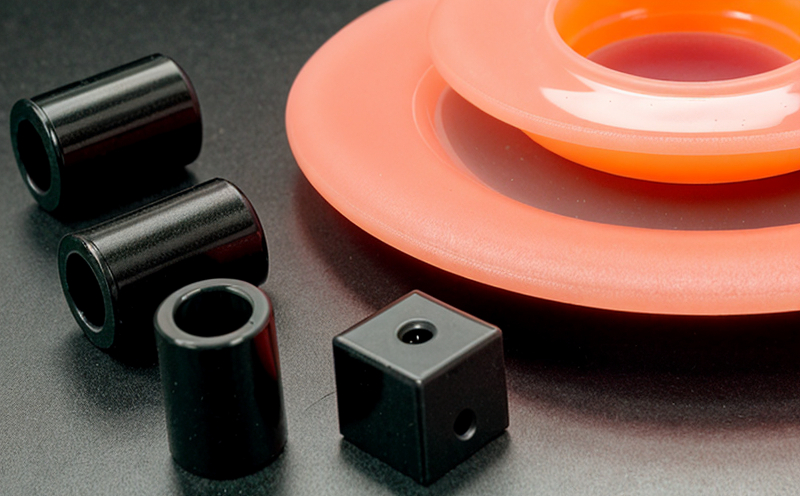BS EN 1900 Resistance Testing of Plastic Canoe Components
The British Standard and European Norm (BS EN) 1900 series provides essential guidelines for the design, manufacture, and testing of plastic canoe components. This service focuses on the resistance testing of plastic canoes according to these standards, ensuring that manufacturers comply with international regulations and deliver products that meet safety, durability, and performance requirements.
The testing is critical in several key areas:
- Impact Resistance: Ensures that canoes can withstand accidental impacts without compromising structural integrity.
- Bend Resistance: Validates the canoe’s ability to maintain its shape under various loading conditions encountered during use.
- Flexural Strength: Assesses the material's resistance to bending, a critical factor in maintaining the canoe’s form and function over time.
The testing process involves meticulous specimen preparation. The canoes are fabricated from specific polymer types commonly used in such applications, including high-density polyethylene (HDPE) and polypropylene (PP). The specimens are then subjected to standardized procedures that replicate real-world conditions faced by the canoe during use.
Testing methodologies include:
- Instrumentation of Canoe Components: Utilizing specialized testing machines capable of simulating environmental stresses such as temperature extremes, water immersion, and mechanical loads.
- Specimen Preparation: Ensuring that each sample accurately represents the intended material properties and geometry.
The results provide detailed insights into the performance of the materials under test. These findings are crucial for continuous improvement in product design and manufacturing processes. Compliance with BS EN 1900 is not just about meeting regulatory requirements; it also ensures that products are reliable, safe, and environmentally friendly.
Quality managers and compliance officers can leverage this service to ensure their products meet the highest standards of performance and safety. R&D engineers can use these tests to refine their designs, while procurement teams can verify the quality of materials they source for production.
Applied Standards
The BS EN 1900 series is part of a broader set of standards that govern the manufacture and testing of plastic products in the sports and leisure industry. The specific application here pertains to the resistance testing of plastic canoe components, which includes:
- BS EN ISO 83: Plastics – Determination of flexural properties. This standard sets out the procedures for determining the flexural strength and modulus of plastics.
- BS EN ISO 14125: Plastics – Determination of impact resistance by means of pendulum tests. It specifies methods to measure the notched impact resistance of thermoplastics using a Charpy impact tester.
These standards ensure that all testing is conducted in a controlled, repeatable manner, providing consistent and reliable results. The use of these internationally recognized standards enhances the credibility and acceptance of test results both domestically and abroad.
Scope and Methodology
The scope of BS EN 1900 resistance testing for plastic canoe components encompasses a range of tests designed to evaluate various aspects of material performance. This includes:
- Impact Resistance Testing: Using the Charpy pendulum impact tester to assess the notched impact strength of the materials used in canoes.
- Bend and Flexural Strength Testing: Employing four-point bend testing machines to determine the flexural properties and resilience of the canoe components.
The methodology involves:
- Specimen Preparation: Ensuring that each sample is representative of the material’s intended use, with attention to surface finish and dimensions.
- Test Setup: Configuring the testing machine according to BS EN specifications, ensuring accurate measurement of loads and deformations.
- Data Collection: Recording all test parameters, including load applied, deflection, and any visual signs of failure.
The results are meticulously documented and reported in accordance with industry best practices. This comprehensive approach ensures that the testing process is thorough and reliable, providing valuable insights into the performance characteristics of the materials used in canoes.
International Acceptance and Recognition
The BS EN 1900 series has gained widespread acceptance across international markets. Here are some key points regarding its recognition:
- United States: The standards are often referenced in American regulations for imported products, ensuring compliance with national safety requirements.
- Canada: Canadian manufacturers and importers of plastic canoes must adhere to these standards to ensure compatibility with local market demands.
- European Union: Compliance with BS EN 1900 is a prerequisite for marketing products within the EU, enhancing market access and consumer trust.
- Australia/New Zealand: These regions also recognize the standard, facilitating trade between countries that share these compliance requirements.
The widespread adoption of these standards ensures that plastic canoe components meet rigorous quality benchmarks, fostering international collaboration and innovation in this sector.





